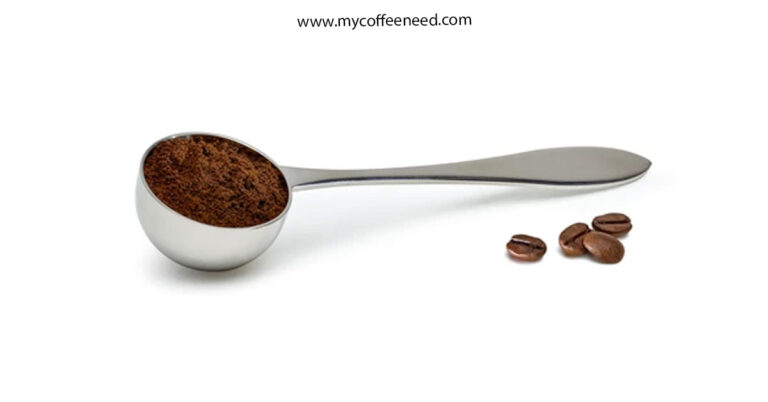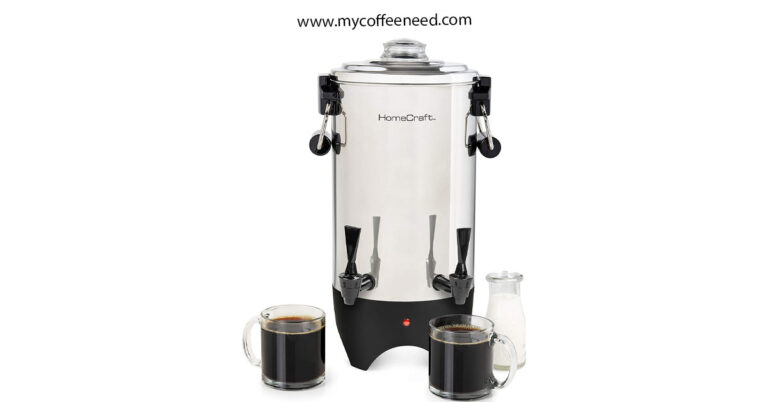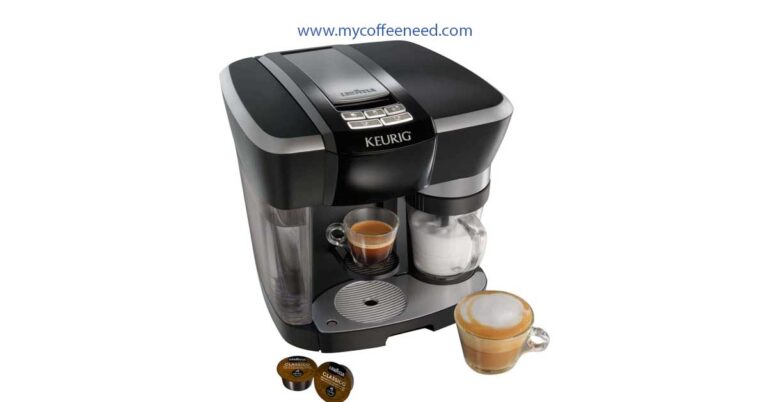Best Coffee To Make You Poop
Coffee lovers, unite! There’s a unique sensation that many coffee enthusiasts experience but rarely talk about: the way a good cup of coffee can stimulate not only the mind but also the digestive system. If you’ve ever wondered why your morning brew seems to jumpstart your body in more ways than one, you’re not alone. In this guide, we will explore the mystery behind the best coffee to make you poop, delving into the science, taste, and comfort of this fascinating phenomenon. Whether you view this as a quirky benefit or a vital part of your daily routine, you’ll find answers to your questions here. Get ready to learn about the beans, blends, and brewing methods that could change your coffee-drinking experience forever.
What is the Science Behind Coffee and Pooping – Why Does it Work for Some but Not Others?
Coffee’s effect on the digestive system has intrigued scientists and coffee lovers alike. But why does it induce this response in some and not others? Let’s brew up the answer:
1. The Gut-Stimulating Compounds: Coffee contains specific compounds like chlorogenic acids and caffeine that stimulate acid production in the stomach. These compounds can increase gastric motility, leading to the urge to defecate for some individuals.
2. The Psychological Effect: For many, the mere ritual of having a hot cup of coffee can trigger a conditioned response in the body. If you’ve regularly experienced bowel movements with your morning coffee, your body might be associating the two.
3. Individual Sensitivity: Different people have different sensitivities to the elements in coffee that affect the gut. Factors such as genetics, diet, metabolism, and even stress can influence how a person’s body reacts to coffee.
4. Timing and Diet: The timing of your coffee consumption and the type of food you pair it with might have varying effects on individuals. Some might find the best coffee to make them poop when consumed on an empty stomach, while others might need a specific diet.
5. The Best Beans and Brewing Methods: Not all coffee is created equal. Different beans and brewing methods can produce varying levels of compounds that stimulate the gut. Finding the perfect blend may be the key to unlocking this unique effect.
In conclusion, the relationship between coffee and pooping is a complex interplay of chemical reactions, psychological connections, and personal sensitivities. Understanding this phenomenon opens the door to personalized coffee experiences, ensuring that each cup is not only delightful to the taste buds but also tailored to the body’s needs. Whether you want to tap into this digestive advantage or simply enjoy the rich flavors, knowing the science behind it can enhance your daily coffee ritual.
Types of Coffee to Try for Poop Relief – Espresso, French Press, Cold Brew, etc.
Finding the best coffee to make you poop isn’t a one-size-fits-all journey. Your preferences, sensitivities, and desired effects may lead you to specific types of coffee. Here’s a guide to understanding how different kinds of coffee might influence your digestive system:
1. Espresso: Known for its concentrated flavor, Espresso packs a punch with its higher caffeine content. If you’re sensitive to caffeine’s digestive effects, an Espresso shot might be your best bet.
2. French Press: The French Press method allows more of the coffee’s oils and tiny grounds into the cup. This may enhance the stimulating effects on the gut, making it a good option for those seeking a natural way to aid digestion.
3. Cold Brew: The Cold Brew method tends to contain less acid but retains caffeine. If you want a smoother, less acidic option with the same gut-stimulating effects, Cold Brew might be your go-to choice.
4. Turkish Coffee: Prepared with unfiltered coffee grounds, Turkish coffee can have a robust effect on the digestive system. The rich texture and unique brewing method might be the perfect solution for some.
5. Bulletproof Coffee: A blend of coffee, butter, and MCT oil, Bulletproof coffee is known to aid metabolism and could stimulate bowel movements. For those looking for an energy boost along with digestive benefits, this is a compelling option.
6. Decaf Options: Even decaffeinated coffee can have a mild effect on the gut, thanks to other compounds like chlorogenic acids. If you’re sensitive to caffeine but still seek the digestive perks, decaf might be your answer.
7. Herbal Coffee Alternatives: For those who want the taste and sensation of coffee without caffeine, herbal alternatives like chicory root coffee can offer a mild effect on digestion without the stimulant.
In exploring these options, it’s essential to consider individual preferences, sensitivities, and the desired balance between taste and digestive effects. Experimenting with various beans, blends, and brewing methods can lead you to the perfect cup that not only delights your taste buds but also serves your body’s unique needs. Finding the best coffee to make you poop might be a flavorful adventure all its own!
The Best Ingredients for a Perfect Pot of Poop-Inducing Coffee
Crafting the perfect pot of poop-inducing coffee isn’t just about selecting the right type of coffee. The ingredients you choose can make a significant difference in achieving the desired digestive effects. Here’s a guide to finding the best ingredients for your personalized brew:
1. Quality Coffee Beans: Look for fresh, high-quality beans that are rich in essential compounds like chlorogenic acids. Different beans may provide varying effects, so don’t hesitate to explore.
2. Proper Grind Size: The grind size can influence the extraction process. For example, a coarser grind may be suitable for a French Press, while a finer grind might be needed for Espresso. Tailor the grind size to your preferred brewing method.
3. Consider Adding Spices: Spices like cinnamon, ginger, or cardamom can enhance both the flavor and the digestive stimulating effects of your coffee.
4. The Right Water Temperature: Water that’s too hot or too cold can affect the extraction of compounds that influence digestion. Aim for a temperature between 195°F to 205°F for optimal results.
5. Healthy Fats: Incorporating healthy fats like MCT oil or butter, as found in Bulletproof coffee, can further stimulate metabolism and aid in digestion.
6. Avoid Over-Brewing: Over-brewing might lead to excessive bitterness and may decrease the beneficial effects. Timing your brew according to your chosen method ensures a balanced flavor and desired digestive impact.
7. Consider Decaf Options: Even without caffeine, decaf coffee can aid digestion. If caffeine sensitivity is a concern, high-quality decaf beans with natural decaffeination processes can be a valuable choice.
8. Mindful Additives: If you enjoy sweeteners or creamers, be mindful of the choices you make, as certain additives can diminish the coffee’s natural effects on digestion.
By thoughtfully selecting the ingredients and paying attention to details, you can brew the best coffee to make you poop that’s tailor-made for your taste preferences and digestive needs. The journey to crafting this perfect pot of coffee invites you to explore, experiment, and enjoy a cup that’s as satisfying as it is effective. The right combination of beans, spices, and technique opens up a world of flavorful possibilities, all while catering to your unique bodily needs. Enjoy the brew!
The Proper Brewing Method for Maximum Effectiveness
The path to discovering the best coffee to make you poop isn’t complete without considering the brewing method. The way you brew your coffee can significantly influence both its flavor and its effectiveness in stimulating digestion. Here are some methods and tips to ensure maximum effectiveness:
1. French Press: By allowing the coffee grounds to steep directly in hot water, the French Press method extracts more oils and compounds, possibly enhancing the coffee’s digestive effects. Be mindful of steeping time; 4 to 5 minutes is often ideal.
2. Espresso Machine: Espresso’s high-pressure extraction maximizes flavor and caffeine content. If caffeine’s stimulating effect on the gut works for you, a good espresso machine might be your key.
3. Cold Brew: Cold Brew requires a longer steeping time (12 to 24 hours), resulting in a smoother, less acidic coffee that retains its digestive-stimulating properties. This method can be an excellent option for those sensitive to acidity.
4. Drip Coffee Maker: A classic drip coffee maker can produce a satisfying cup. Using medium-coarse ground coffee and following the manufacturer’s guidelines can help you achieve the desired balance between taste and digestive benefits.
5. Aeropress: The Aeropress offers a versatile brewing experience, enabling you to control various factors like temperature, steeping time, and pressure. Experimenting with this method might lead you to your perfect digestive-stimulating brew.
6. Pour-Over: A pour-over method gives you control over pouring speed and water temperature. This hands-on approach allows you to fine-tune the brewing process to your liking, possibly enhancing the coffee’s effects on digestion.
7. Turkish Coffee: Turkish coffee’s unfiltered method can provide a robust and unique effect on the digestive system. Pay attention to simmering time and temperature to craft the perfect cup.
8. Consider Water Quality: The water quality can influence the flavor and effectiveness of the coffee. Using filtered water free of impurities will ensure a purer taste and better extraction of the essential compounds.
The journey to crafting the perfect pot of poop-inducing coffee isn’t just about the beans and additional ingredients; it’s also about the method that brings them all together. Understanding and experimenting with different brewing techniques might be the final step in finding the best coffee to make you poop. Whether you seek a rich and robust espresso or a smooth and subtle cold brew, the right method can turn your daily coffee ritual into a personalized, pleasurable, and purposeful experience. Enjoy the brew, and embrace the benefits!
Tips on Finding the Right Roast of Coffee for Your Unique System
When it comes to finding the best coffee to make you poop, the roast level of the coffee beans plays a crucial role. Different roasts not only offer diverse flavors but can also have varying effects on the digestive system. Here’s a guide to help you find the right roast for your unique body:
1. Light Roast: Light roasts preserve more of the coffee’s natural flavors and compounds, including caffeine. If you’re sensitive to caffeine’s stimulating effects on the gut, a light roast might be your preferred choice.
2. Medium Roast: A balance between flavor, acidity, and caffeine content, medium roasts often provide a well-rounded coffee experience. If you’re looking for a subtle digestive nudge without overpowering effects, this might be the way to go.
3. Dark Roast: Rich and bold in flavor, dark roasts often contain less caffeine but more of certain digestive-stimulating compounds. If you love a strong taste and seek digestive benefits without excessive caffeine, consider a dark roast.
4. Experiment with Blends: Don’t be afraid to experiment with blends that combine different roast levels. A well-crafted blend might offer the perfect balance of flavor and digestive effectiveness for your unique system.
5. Consider Single Origin: Single origin coffees provide distinct flavors and characteristics based on their geographical location. Exploring these options might lead you to a specific region’s beans that suit your digestive needs perfectly.
6. Pay Attention to Freshness: Freshly roasted beans will provide the most pronounced flavors and effects. Look for roast dates on the packaging and opt for freshly roasted beans when possible.
7. Roast at Home: If you want complete control over your roast, consider roasting green coffee beans at home. Home roasting allows you to fine-tune the roast level to your exact preference, enhancing both flavor and digestive benefits.
8. Consult with a Barista or Coffee Expert: If you’re uncertain about where to start, seeking advice from a knowledgeable barista or coffee expert might provide personalized recommendations based on your tastes and digestive responses.
Finding the right roast is a personal journey, and what works best for one individual may differ for another. Understanding the nuances of different roasts and being willing to explore and experiment can lead you to the ideal brew for your system. Embrace the adventure of discovering the perfect roast, and enjoy the process of crafting the best coffee to make you poop. Your taste buds and digestive system will thank you!
Alternatives to Coffee for Bowel Movements – Tea, Herbal Remedies, etc.
While many turn to coffee for its unique ability to stimulate bowel movements, it’s not the only option out there. Whether due to personal preference, caffeine sensitivity, or other reasons, you may be looking for alternatives. Here’s a guide to various substitutes that can aid in digestion and support regular bowel movements:
1. Herbal Teas: Herbal teas like peppermint, ginger, and senna have natural properties that stimulate digestion. They offer a soothing and gentle way to promote regularity.
2. Green Tea: Known for its gentle caffeine content and rich antioxidants, green tea can be a milder alternative to coffee for some individuals, providing a gentle nudge to the digestive system.
3. Warm Water with Lemon: A simple concoction of warm water with a squeeze of fresh lemon can wake up the digestive tract. This natural remedy is often used to jump-start the digestive system in the morning.
4. Prune Juice: Rich in fiber and natural sugars that act as laxatives, prune juice has long been recognized as an effective aid for constipation.
5. High-Fiber Foods: Foods rich in fiber, like whole grains, fruits, and vegetables, naturally support digestion and can be a vital part of maintaining regular bowel movements.
6. Chicory Root Coffee: A caffeine-free alternative to traditional coffee, chicory root coffee offers a similar taste and has been associated with supporting digestion.
7. Regular Exercise: Physical activity stimulates the muscles in your gut, helping to keep food moving through your system. Incorporating regular exercise into your routine can promote digestive health.
8. Proper Hydration: Drinking enough water supports overall digestive function. Keeping well-hydrated is essential to smooth bowel movements.
9. Mindful Eating Practices: Eating slowly, chewing thoroughly, and being mindful of your body’s cues can enhance digestion and regularity.
Finding the best alternative to coffee for supporting bowel movements requires a blend of understanding your body, experimenting with different options, and perhaps consulting with a healthcare provider if chronic issues persist. Whether through natural beverages, dietary choices, or lifestyle practices, various pathways lead to digestive health. Exploring these alternatives not only diversifies your options but empowers you to find what resonates with your unique system, ensuring that your digestive health is nurtured in a way that suits you best.
Conclusion
The search for the best coffee to make you poop leads to a fascinating exploration of taste, science, and individual preferences. From understanding the unique relationship between coffee and the digestive system to selecting the right roast and brewing method, the journey to finding the perfect cup is a personalized and rewarding experience.
For those sensitive to coffee or seeking alternatives, a world of other beverages and practices also offers supportive pathways to digestive well-being. Whether through the rich flavors of diverse coffee roasts, the soothing touch of herbal teas, or mindful lifestyle choices, the options are abundant.
Embracing the exploration of coffee, its alternatives, and their effects on digestion is more than just a quest for relief. It’s an opportunity to connect with your body, engage with flavors, and uncover a delightful and effective daily ritual that resonates with your unique system.
The perfect cup awaits, ready to provide not just taste satisfaction but the harmony of a well-balanced digestive system. Enjoy the brew, and savor the benefits!






